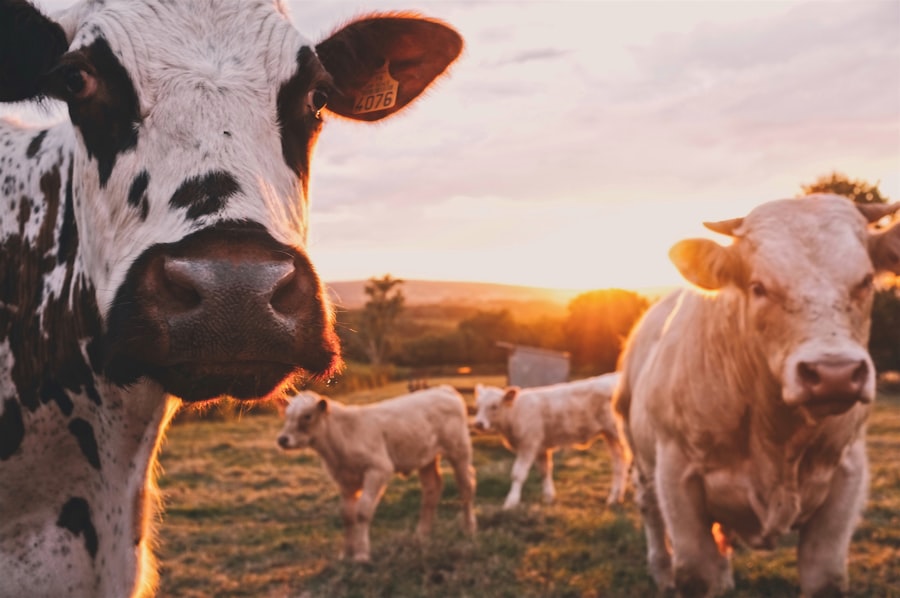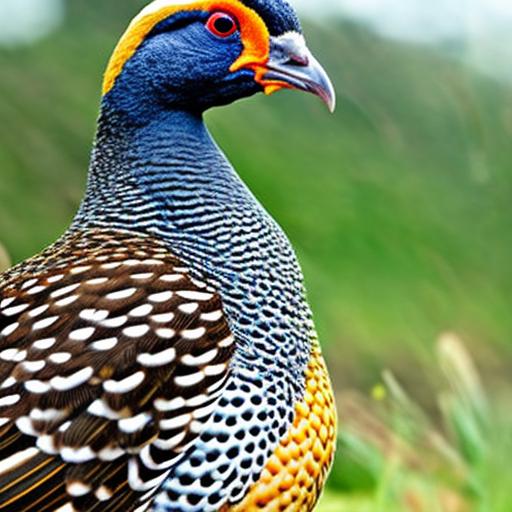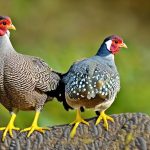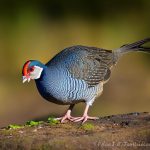Free range guinea fowl have a number of benefits for both the birds and their owners. These birds are known for their excellent foraging abilities, which means they can help control pests and insects in the area where they roam. This can be particularly beneficial for gardeners and farmers, as guinea fowl can help keep pest populations in check without the need for chemical pesticides. Additionally, free range guinea fowl are generally healthier and happier than birds kept in confinement. They have the freedom to roam and exhibit natural behaviors, which can lead to reduced stress and improved overall well-being. This can result in healthier, more productive birds that are better able to resist disease and parasites. Furthermore, free range guinea fowl are often more flavorful and nutritious than their confined counterparts, as they have access to a wider variety of natural foods and nutrients.
On the other hand, free range guinea fowl can also benefit their owners by providing a source of natural pest control and potentially even a supplemental income. By allowing the birds to roam freely, owners can reduce their reliance on chemical pesticides and other pest control methods, which can be both costly and harmful to the environment. Additionally, some owners may choose to sell guinea fowl eggs or meat, which can provide a valuable source of income. Overall, free range guinea fowl offer a range of benefits for both the birds and their owners, making them an attractive option for those looking to raise poultry in a more natural and sustainable way.
Key Takeaways
- Free range guinea fowl provide natural pest control by eating insects and ticks, reducing the need for chemical pesticides.
- Creating a safe and secure environment for guinea fowl helps prevent them from wandering off and protects them from predators.
- Adequate shelter and roosting space is essential for guinea fowl to feel safe and comfortable, leading to better health and egg production.
- A balanced diet for guinea fowl includes a mix of grains, seeds, and insects, as well as access to fresh water and grit for digestion.
- Managing predators and pests around the guinea fowl’s environment is crucial for their safety and well-being.
- Regular monitoring of guinea fowl health and wellness can help identify and address any potential issues early on.
- Training and handling guinea fowl can help build trust and make it easier to manage and care for them.
Creating a Safe and Secure Environment
Creating a safe and secure environment for free range guinea fowl is essential to ensuring their well-being and productivity. This begins with providing adequate fencing to keep the birds contained within a designated area while still allowing them to roam freely. The fencing should be tall enough to prevent the birds from flying over it, and it should also be buried into the ground to prevent predators from digging underneath it. Additionally, it’s important to regularly inspect the fencing for any signs of wear or damage, as even small holes or gaps can provide an opportunity for predators to enter.
In addition to fencing, it’s important to provide adequate shelter for the guinea fowl to protect them from the elements and potential predators. This can include a secure coop or shelter where the birds can roost at night, as well as access to natural cover such as trees or shrubs where they can seek refuge during the day. Providing multiple shelter options can help ensure that the birds have a safe place to retreat to at all times. Finally, it’s important to regularly monitor the environment for any potential hazards or threats, such as toxic plants or other dangers. By creating a safe and secure environment for free range guinea fowl, owners can help ensure the well-being and safety of their birds.
Providing Adequate Shelter and Roosting Space
When it comes to providing adequate shelter and roosting space for free range guinea fowl, there are several key considerations to keep in mind. First and foremost, it’s important to provide a secure coop or shelter where the birds can roost at night and seek refuge from predators and the elements. The coop should be well-ventilated and provide enough space for all of the birds to roost comfortably, with at least 2-3 square feet of space per bird. Additionally, it’s important to provide nesting boxes or areas where the birds can lay their eggs, as well as perches or roosting bars where they can rest and sleep.
In addition to a secure coop, it’s also important to provide access to natural cover such as trees or shrubs where the guinea fowl can seek refuge during the day. This can help provide additional protection from predators and the elements, as well as opportunities for the birds to exhibit natural behaviors such as dust bathing and foraging. Providing multiple shelter options can help ensure that the birds have a safe place to retreat to at all times, whether they are roosting at night or foraging during the day. By providing adequate shelter and roosting space for free range guinea fowl, owners can help ensure the well-being and safety of their birds while also allowing them to exhibit natural behaviors.
Maintaining a Balanced Diet
Maintaining a balanced diet is essential to ensuring the health and productivity of free range guinea fowl. These birds are natural foragers and will consume a wide variety of foods when given the opportunity, including insects, seeds, fruits, and vegetation. However, it’s important to supplement their natural diet with a balanced commercial feed that provides essential nutrients such as protein, vitamins, and minerals. This can help ensure that the birds are receiving all of the nutrients they need to thrive, particularly during times when natural food sources may be limited.
In addition to commercial feed, it’s also important to provide access to fresh water at all times, as dehydration can quickly become a serious issue for guinea fowl. Additionally, owners may choose to provide supplemental treats such as fruits, vegetables, or mealworms as a way to provide additional nutrients and enrichment for the birds. It’s important to monitor the birds’ diet closely and make adjustments as needed based on their health and productivity. By maintaining a balanced diet for free range guinea fowl, owners can help ensure that their birds are healthy, productive, and able to thrive in their natural environment.
Managing Predators and Pests
Managing predators and pests is an important aspect of raising free range guinea fowl, as these birds are particularly vulnerable to a wide variety of threats in their natural environment. Predators such as foxes, raccoons, hawks, and snakes can pose a serious threat to guinea fowl, particularly when they are allowed to roam freely. To manage these threats, it’s important to implement effective predator control measures such as secure fencing, predator-proof coops, and regular monitoring of the environment for signs of potential threats.
In addition to predators, guinea fowl are also susceptible to a variety of pests such as mites, lice, and ticks. These pests can cause discomfort and health issues for the birds if left unchecked, so it’s important to implement regular pest control measures such as dust baths, diatomaceous earth, or other natural remedies. Regular monitoring of the birds for signs of pests or illness can help ensure that any issues are addressed promptly before they become more serious. By effectively managing predators and pests, owners can help ensure the safety and well-being of their free range guinea fowl while allowing them to thrive in their natural environment.
Monitoring Health and Wellness

Monitoring the health and wellness of free range guinea fowl is essential to ensuring their well-being and productivity. This begins with regular observation of the birds for any signs of illness or injury, such as changes in behavior, appearance, or appetite. It’s important to handle the birds regularly in order to check for any abnormalities or issues that may require attention. Additionally, owners should be familiar with common health issues that may affect guinea fowl, such as respiratory infections, parasites, or nutritional deficiencies.
In addition to regular observation, it’s important to provide regular veterinary care for the birds in order to address any health issues that may arise. This may include vaccinations, deworming treatments, or other preventative measures to help keep the birds healthy and disease-free. Finally, providing a clean and sanitary environment for the birds is essential to preventing illness and promoting overall wellness. By monitoring the health and wellness of free range guinea fowl on a regular basis, owners can help ensure that their birds are healthy, happy, and able to thrive in their natural environment.
Training and Handling Guinea Fowl
Training and handling guinea fowl is an important aspect of raising these birds in a free range environment. While guinea fowl are generally independent and self-sufficient animals, they can benefit from positive interactions with their owners in order to build trust and reduce stress. This begins with gentle handling from a young age in order to acclimate the birds to human contact and reduce fearfulness. Additionally, providing regular treats or rewards can help reinforce positive behaviors and encourage the birds to approach their owners willingly.
In addition to training, it’s important to handle guinea fowl regularly in order to check for any signs of illness or injury. This can also help acclimate the birds to being handled, making it easier to perform routine health checks or administer veterinary care when needed. Finally, providing enrichment such as toys or natural materials can help keep the birds mentally stimulated and reduce boredom or stress. By training and handling guinea fowl in a positive and gentle manner, owners can help ensure that their birds are comfortable with human interaction while allowing them to thrive in their free range environment.
In conclusion, raising free range guinea fowl offers a wide range of benefits for both the birds and their owners. By creating a safe and secure environment with adequate shelter and roosting space, maintaining a balanced diet, managing predators and pests, monitoring health and wellness, and training and handling the birds in a positive manner, owners can help ensure that their guinea fowl are healthy, happy, and able to thrive in their natural environment. With proper care and attention, free range guinea fowl can provide valuable pest control services while also offering flavorful meat or eggs as a potential source of income for their owners. Overall, raising free range guinea fowl can be a rewarding experience that allows both the birds and their owners to benefit from a more natural and sustainable approach to poultry farming.
If you’re considering keeping guinea fowl free range, you may also be interested in learning about the benefits of using a secure and convenient chicken coop. Poultry Wizard offers a helpful article on the Snaplock Chicken Coop, which provides insights into the features and advantages of this innovative coop design. Check out their article here to discover how it can enhance your poultry management experience.
FAQs
What is free range guinea fowl?
Free range guinea fowl are birds that are allowed to roam and forage for food in a natural environment, rather than being confined to a small space or enclosure.
What are the benefits of keeping guinea fowl free range?
Keeping guinea fowl free range allows them to exhibit natural behaviors, such as foraging for insects and seeds, which can improve their overall health and well-being. It also reduces the need for supplemental feeding and provides a more natural and sustainable way of raising guinea fowl.
How do you keep guinea fowl safe when free ranging?
To keep guinea fowl safe when free ranging, it’s important to provide a secure coop or shelter for them to roost in at night to protect them from predators. Additionally, regular monitoring of the flock and providing a safe and predator-proof environment can help keep guinea fowl safe when free ranging.
What should be considered before letting guinea fowl free range?
Before letting guinea fowl free range, it’s important to consider the potential risks of predators, such as foxes, raccoons, and birds of prey, as well as the availability of suitable foraging areas and the potential for conflicts with neighbors or other animals.
Are there any drawbacks to keeping guinea fowl free range?
Some potential drawbacks of keeping guinea fowl free range include the risk of predation, the potential for conflicts with neighbors or other animals, and the need for a secure shelter for the birds to roost in at night. Additionally, free ranging guinea fowl may be more difficult to contain and manage compared to birds kept in a confined space.
Meet Walter, the feathered-friend fanatic of Florida! Nestled in the sunshine state, Walter struts through life with his feathered companions, clucking his way to happiness. With a coop that’s fancier than a five-star hotel, he’s the Don Juan of the chicken world. When he’s not teaching his hens to do the cha-cha, you’ll find him in a heated debate with his prized rooster, Sir Clucks-a-Lot. Walter’s poultry passion is no yolk; he’s the sunny-side-up guy you never knew you needed in your flock of friends!







